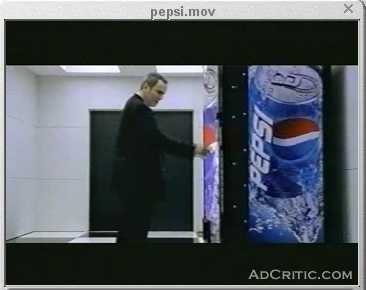 | |
| _ | |
| Online Database | |
| Player Database | |
| ChessBase World | |
| Birthday Calendar | |
| New Products | |
| Shop | |
| Puzzle | |
| Tactics | |
| Support | |
| T-Notes | |
| Contents | |
| Contact | |
ChessBase Magazine 82 (June 2001)
The main database
This contains 1226 games and seven database texts – an introductory text with hints on how to access the database, two texts featuring surveys on the opening sectors reviewed by Christopher Lutz and Igor Stohl as well as four tournament texts.
The strongest classical tournament was the one in Linares. This year, the two world champions Vladimir Kramnik and Vishy Anand were absent – the FIDE world champion allegedly had other obligations, and Kramnik was, as it transpired, not satisfied with the financial offer. But Gary Kasparov did play, and the dethroned world champion outdistanced the other five participants by three points (7,5/10). It was a case of one first place, five last places.
In March nearly the complete world elite was at the start at the Cote d'Azur, split up in two tournaments. The well-known Amber tournament in Monaco took place only a few kilometers away from the Rapid Chess tournament in Cannes. The latter had two preliminary groups with eight players each. The first four of each group qualified for the following knock-out rounds. Kasparov convincingly won in his group. Behind him the qualifiers were Bareev, Grischuk and Judit Polgar after tie-break. In the other group Adams, Gurevich, Bacrot and Tkachiev were successful. On the way to the final Kasparov defeated Tkachiev and, with some luck, Grischuk only in the tie-break. In the final against Bareev the first game ended in a draw. In the second Bareev resigned with only a few seconds on the clock, however, in a drawn position!
The "Chess Summit" USA vs China was staged in Seattle. USA lost the match with 19:21 points. The 2:6 result at the juniors‚ boards made the difference. In the German Bundesliga the Lübecker SV scored a decisive victory over Porz in the penultimate double round. Games of the Bundesliga have already been published by us sporadically. As soon as all games are available we will supply them in one of the coming issues. CBM 82 contains 63 annotated games as an advance delivery.
Statistics of CBM 82
- 20 complete tournaments
- 1226 games
- 418 games extensively annotated by 38 experts (including GMs Bareev, Hübner, Kortschnoi, Krasenkow, Lutz, McShane, Psakhis)

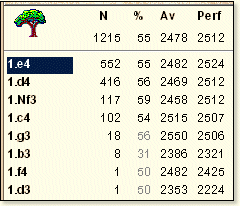
Additional databases
Theory
A19 The Basman-Gambit: 1.c4 g5 2.d4 Bg7. This gambit is naturally only for devotees. Alexander Bangiev and Peter Leisebein have compiled a database containing 67 games. Leisebein has annotated all of the 19 games he played himself.
C42 The Stafford-Gambit: This gambit arises after 1.e4 e5 2.Nf3 Nf6 3.Nxe5 Nc6. Jerzy Konikowski comments on the gambit and shows that White can effortlessly reach a decisive advantage. After the simple exchange 4.Nxc6 dxc6 and now 5.d3 or 5.Nc3 Black has no sufficient compensation for the sacrificed pawn. His conclusion: This gambit cannot be re-commended for Black.
D37 Queen's Gambit with 5.Bf4: The sequence of moves 1.d4 d5 2.c4 e6 3.Nc3 Nf6 4.Nf3 Be7 is also known as the Orthodox Queen's Gambit. But this opening is still one of the most solid answers known to 1.d4. More or less forced, you can reach a position after 5.Bf4 0-0 6.e3 c5 7.dxc5 Bxc5 8.cxd5 Nxd5 9.Nxd5 exd5 10.a3 Nc6 11.Bd3, about which Rustem Dautov writes: "The player of the white side doesn't have to know too much theory compared to the main continuation with 5.Bg5. At the same time it is clear and understandable." Dautov has annotated 13 games especially for this database. He presents the current level of the theory in this variation together with a database text and an opening key.
E04 Catalan: If after the moves 1.d4 Nf6 2.c4 e6 3.Nf3 d5 4.g3 dxc4 5.Bg2 Black opts for 5...Nc6, then 6.Qa4 should be the follow-up (6.0-0 Rb8!), and after 6...Bb4+ 7.Bd2 Nd5 8.Bxb4 Ndxb4 we have the starting position of the article of our Hungarian contributor Zoltan Ribli. He believes White should continue after 9.0-0 a6 with 10.Na3 in order to gain an opening advantage. 9.a3 leads to extremely sharp positions.
Strategy
Peter Wells has wrested some remarkable insights from his topic Openings with reversed colors. The mere indication that our unfounded anxiety about the opponent's extra tempo is of practical value.
Tactics
Valery Atlas is our new contributor for tactics. He selected and worked on 27 games for his database spending a lot of time and energy. Help functions, feedback and a points system make our tactics section more fun than ever.
Endgame
Hans-Joachim Hecht shows that, because of shorter time controls, the error rate in endgames has become much higher.
ICCF Telechess
The latest issue on correspondence and email chess was submitted by the ICCF. In a meticulous and fully detailed report the team under the heading of the president of the ICCF, Alan Borwell, has compiled a database with 1748 games with 10 database texts. Over 50 games are annotated.
Demo
Here the latest products are described. This time these are the programs Shredder and Junior. While you can get a good idea of the latter because of the games from the match against Deep Fritz, Shredder presents itself by games especially compiled for this database.
Fritz-Forum
The match between Deep Fritz and Deep Junior in Cadaqués attracted considerable attention, for a number of reasons. First of all, it was the qualification for a match against Kramnik in October, with a lot of money at stake. Secondly, the course of the match was highly unusual. Junior took the lead by 5:0, allowed a 12:12 tie after 24 games, and finally lost 12:14 after a tie-break. The games were highly interesting, even for strong human players.
You can order ChessBase Magazine 82 here.
Price: Euro 19.94 (foreign orders $15 without taxes)
Multimedia Reports
A multimedia report by Frederic Friedel
Please
note that the multimedia report in this online version contains no videos.
On the CBM CD there over 600 Mbytes of video files.
The first big event of the year 2001, the Corus Chess Tournament, was held from January 12 to 28 in the Dutch seaside resort of Wijk aan Zee. In this report we visit the tournament with a video camera. There is also a section of games annotated by an olive farmer:
A Greek olive farmer writes (Annotated games)
You can also consult the annotated games, which were part of ChessBase Magazine 81.
Getting there
It is not easy to find, even on a detailed map of Holland. The name is pronounced "wyke aahn zay" and, as we described a year ago, basically to get there you've got to drive to the west, around Amsterdam, then northwards and then at Beverwijk towards the sea. Full instructions are available here...
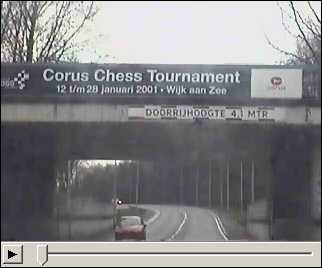
Video Wijk01 (0 min 44 sec)
Our first video shows us driving into the city (or seaside resort, or whatever). At the end of the first half you see the tournament hall with the flags. Entering the hall we see Garry Kasparov himself, behind a large crowd of bustling spectators. In the foreground is the big Wijk aan Zee open, which is held in the same hall.
There are exactly eight hotels or places to stay in Wijk. They are all marked on this picture. You you can click any of the numbers for full details (including phone and fax) of the marked hotel. Last year we stayed at the hotel Zeeduin (5), which is built on a duin (or dune) right next to the sea. It's probably spectacular during the right season. In January there were gale-force winds and rain, and a pounding sea just a few yards from the window. That made for a truly memorable stay.
The Corus Chess Tournament
The Super GM with an average rating of 2713 was a category 19, and the field of 14 players included no less than the first nine in the world. The full line-up is shown at our Wijk aan Zee 2001 web site.
Okay, let's take a look at the chess. We start with some impressions from round 12, the second last in this tournament.
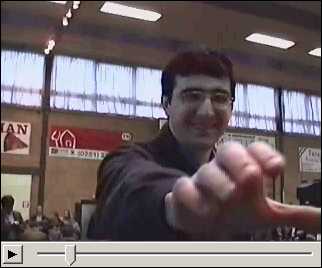
Video Wijk02 (1 min 32 sec)
We first see Vladimir Kramnik, who politely shakes hands with my video camera, then Alexei Shirov, who is scheduled to play Kramnik. The two are quite hostile to each other, but that this does not preclude a handshake at the beginning of the game. Vishy Anand has been waiting for this exciting moment and comes over to check whether I captured the handshake on video. That's the kind of thing Vishy thinks of during a game. Garry Kasparov enters and does his usual rituals (ending with the watch thing) before his game against Loek van Wely.
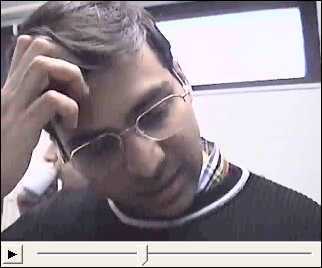
Video Anand1 (1 min 37 sec)
The first to finish that day was Vishy Anand, who was on a killing spree against the Dutch players. In the press room he tells us about his win against Jan Timman.
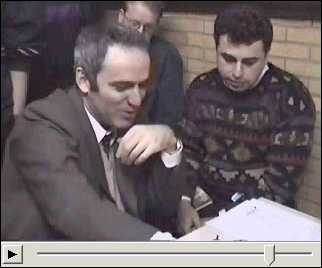
Video GK01 (2 min 18 sec)
Soon after the time controls Garry Kasparov agrees to a draw against Loek van Wely. Afterwards they analyse the game together, with a bemused Yassir Seirawan watching on.
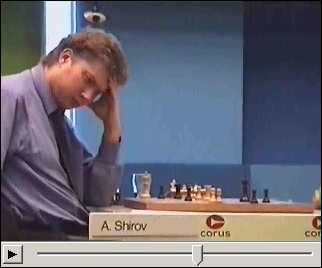
Video Think (1 min 22 sec)
Chess is a tough game. Watch these two think. Watch especially for Alexei Shirov's trademark style of looking away from the board when things become really complicated. Vladimir Kramnik, on the other hand, has to hold his head and support the weight of his brain when he is doing the same thing. He did win the game, though, with black.
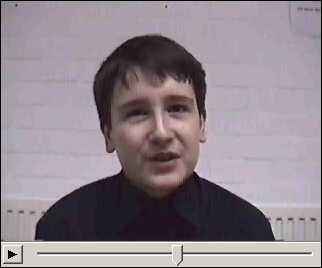
Video Radjabov (5 min 14 sec)
Meet Teimour Radjabov from Baku (would you know it), 13 years old, the world's youngest grandmaster. Even more impressive than his chess -- if that is at all possible -- is his eloquence and the mature way he answers questions. He does it all in an English you certainly did not hear from young boys from Russia ten years ago.
This is Teimour's Elo progress in his three-and-a-half year chess career:
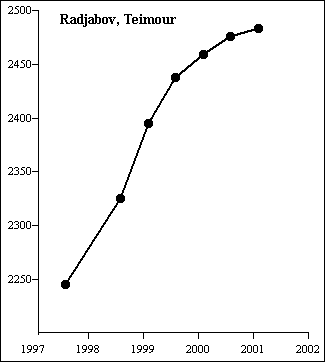
One of the high points of my yearly visits to Wijk is meeting and chatting with Gennadi Sosonko. I always make sure I corner him for a talk in front of my camera.
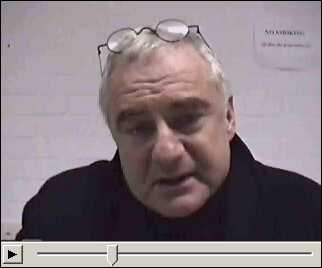
Video Sosonko1 (4 min 15 sec)
Video Sosonko2 (3 min 39 sec)
Genna discusses the reasons for Garry Kasparov's loss of his world championship title in London to Vladimir Kramnik, and why he still dominates world chess. In Wijk Alexei Shirov started like a rocket and fizzled out in the end. Genna explains this phenomenon to me. He also talks about Kramnik's performance in Wijk. In round 12, he says, it was Shirov who beat himself, rather than Kramnik winning the game.
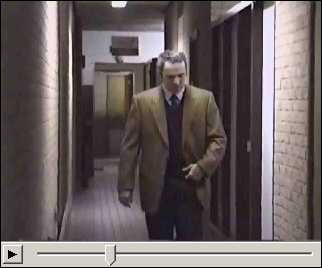
Video Lastrnd (1 min 23 sec)
They come marching down the dark and narrow corridor, the world's top players, some cheerfully with a funny remark, some with a sullen, hostile look. It is the last round of the tournament.
After the end of the last round we had the honour of a visit by Garry in the press room. This is not meant sarcastically -- after ostracising the smoky, noisy journalist den in the previous year it was good to have him come by and talk openly and frankly with the members of the press.
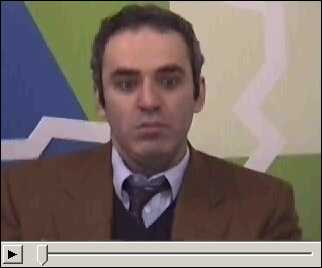
Video Gkpress1 (3 min 10 sec)
Garry tells us that it was a "lousy tournament for most of the players". He elucidates by pointing out specifically the games the three top seeds had played against each other, but also discusses some of the other games that contributed to his spectacular win.
Video Gkpress2 (2 min 43 sec): We ask Garry about the rematch he is demanding from Kramnik. He discusses the great responsibilities that rest on Kramnik's shoulders.
Video Gkpress3 (1 min 33 sec): Garry tells us about the book he is working
on, which is about all the previous world champions. This is one we are
not going to want to miss.
Video Gkpress4 (5 min 25 sec): One of the journalist gets into a debate
about the responsibility of the world champion, who does not have to look
for sponsors in other sports. Garry patiently explains the difference
between chess and "other sports".
Video Gkpress5 (1 min 12 sec): "The only way to become world champion
is to beat a world champion," Kasparov says. "Everyone else
comes from an incubator." He only recognises Kramnik, who is the
14th world champion.
Video Gkpress6 (2 min 53 sec): A German journalist asks him whether it
isn't too early to pass harsh judgement on Kramnik's activities after
winning the title. Garry talks about his own activities in 1985. He talks
about the rematch and says that if Kramnik does not take him up on this
offer he will soon be in "time trouble".
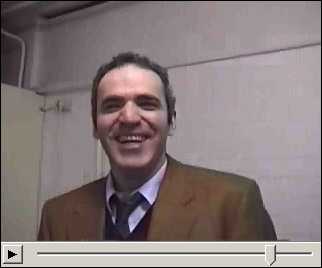
Video Gkpress7 (3 min 10 sec)
After the press conference Garry tells us about the making of the Pepsi commercial which was to be aired a few days later during intermission in the Superbowl (only an American can understand the magnitude of these words).
The ad is about a Pepsi vending machine taking revenge on the world champion for beating a brother in chess. You can see it at the "Pepsiworld" and many other sites (search for "Pepsi man vs machine").
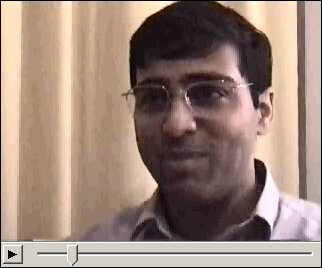
Video Anand2 (4 min 44 sec)
In closing -- and in keeping with a long tradition -- we have a midnight chat with Vishy Anand. He tells us what it was like to play in his first tournament after winning the FIDE world championship. My colleague Arvind Aaron from Chennai, which is the current spelling of Madras, asks most of the questions.
You can order ChessBase Magazine 82 here.
Price: Euro 19.94 (foreign orders $15 without taxes)
On to our exclusive interview with Evgeny Bareev
